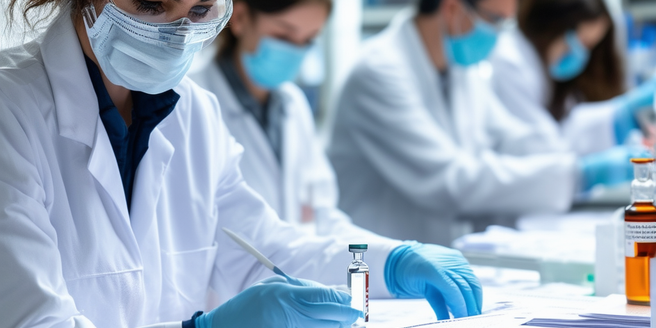
Understanding Vaccine Safety: The Basics
Vaccines, crucial for preventing and controlling disease, work by strengthening an individual’s immune response to create a strong defense against specific pathogens. During development, vaccines undergo rigorous testing and assessment including pre-clinical and clinical trials. In these trials, detailed information about each potential vaccine is gathered through systematic research, comparing their effects to a control group that may receive a placebo or a different vaccine. An expert team reviews these results, and if the benefits greatly outweigh the potential risks, the vaccine is approved for public use. This process ensures the safety and effectiveness of vaccines, offering both individual protection and contributing to herd immunity for overall societal health.
How Vaccine Safety is Monitored
The safety-monitoring process doesn’t end after a vaccine is approved; in fact, that’s when vigilant surveillance, like systems such as VAERS and VSD, kick in. These units evaluate relevant vaccine data to identify potential issues and maintain efficacy. They provide an understanding of the vaccine’s post-approval performance and scrutinize possible areas of concern. This continual monitoring is key for maintaining the vaccine’s safety standards even after its release into the market. With this, even after approval, monitoring and evaluation persist, guaranteeing not just the vaccines’ effectiveness in disease prevention but also their safety for general distribution.
The History of Product Liability Laws
Product liability laws, designed to hold manufacturers and sellers responsible for harm caused by their products, have evolved from their limited scope in the early 20th century as society started placing greater emphasis on consumer rights. This evolution expanded these laws in response to increased recognition of consumer rights and the demand for better consumer protection. The core principle of these laws is to hold sellers accountable for any damage their products may cause, ensuring safety by imposing thorough product testing and defect checks before they reach consumers. The aim of these laws is to balance the profitability of manufacturers and the safety of consumers, imposing responsibility on businesses to ensure product safety. They serve as checks and balances, prioritizing individual well-being over corporate profits, facilitating a safer marketplace where power is balanced between sellers and buyers.
Product Liability and Vaccines: What You Need to Know
Vaccine manufacturers worldwide adhere to stringent safety and efficacy standards due to their role in developing treatments against life-threatening diseases. Despite this, like any other medicinal product, vaccines may not be 100% risk-free, but product liability laws hold companies responsible for any complications. These laws operate within the broader field of health and medicine, especially in pharmacology.
Understanding and implementing product liability laws are crucial for manufacturers, not just post-product launch, but throughout the lifespan of their products. These laws not only protect consumers but also prompt manufacturers to maintain stringent quality measures, prioritizing their consumers’ health and well-being and their market reputation. Although not entirely risk-free, these laws ensure vaccines and other products are designed and produced with utmost safety and efficacy considerations.
Recent Developments in Vaccine Product Liability Laws
The COVID-19 pandemic triggered a global emphasis on rapid vaccine development. This urgency led to the acceleration of vaccine creation and testing, along with the establishment of new regulations and laws to balance speed and safety standards. This legislation, enacted at different levels, offers protections for vaccine manufacturers against potential legal fallout while maintaining consumer safety. It does not protect manufacturers in cases of gross negligence or intent to harm, ensuring companies remain highly accountable for their products. Despite swift vaccine production, authorities enacted additional laws to guarantee safety, outlining circumstances where companies can be held accountable. Consequently, new laws have been globally enacted in response to the pandemic, striking a balance between rapid production and stringent safety guidelines, and protecting manufacturers against lawsuits with the exception of gross negligence or intentional harm.
Future Perspectives on Vaccine Safety and Product Liability Laws
The rapid advancements in the medical field and the emergence of new pathogens require a continuous revision of vaccine safety and product liability laws. It’s critical to strike a balance between legal responsibilities and scientific innovations in these regulatory waters, ensuring consumer protection isn’t compromised for vaccine benefits. Our primary goal should be to protect medicine users, provide transparency, maximizing vaccine benefits while offering consumer reassurances that their wellbeing tops everything else. Navigating this complex landscape, the quest for balance between legal implications, scientific advancements, consumer protection, and maximizing vaccine benefits, should be our guiding principle in ensuring vaccine safety and consumer protection in the face of new diseases.
